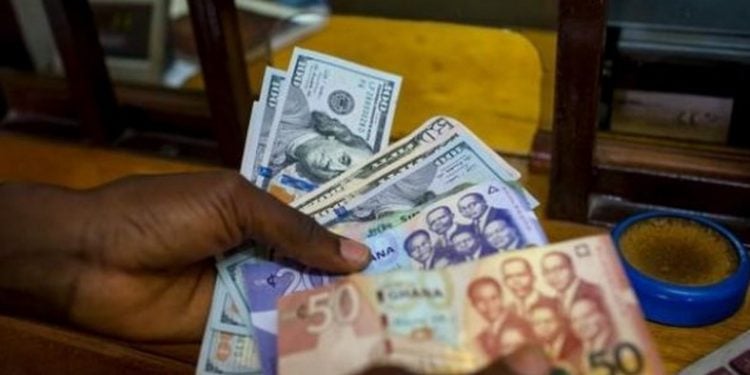The Ghana cedi has staged one of its most remarkable rebounds in decades, but a new analysis warns that the sustainability of those gains remains far from guaranteed.
According to Finance Minister Dr. Cassiel Ato Forson, the currency has “demonstrated exceptional resilience and strength” in recent months, marking a striking reversal of years of weakness.
Presenting the 2025 Mid-Year Budget Review to Parliament, he said that by the end of June 2025, the cedi had appreciated by 42.6 percent against the US dollar, 30.3 percent against the British pound, and 25.6 percent against the euro.
The Minister contrasted this surge with the same period in 2024, when the cedi depreciated by 18.6 percent, 17.9 percent, and 16 percent respectively. “So far,” he said, “we have almost reversed all the cedi depreciation in 2022, 2023 and 2024.”
While the government has celebrated the turnaround, Cnergy Global Holdings cautioned that the currency’s strength cannot simply be assumed to last.
In its review of the budget, the advisory firm called the cedi’s rebound “one of the country’s biggest economic success stories this year,” crediting the gains to stronger reserves and sustained foreign exchange interventions by the Bank of Ghana. But it also asked a critical question: can the cedi remain strong if these support measures are rolled back?
Market watchers cited in the analysis believe the central bank’s direct involvement in the foreign exchange market has been the single biggest factor behind the currency’s resilience. However, the International Monetary Fund has advised the Bank of Ghana to ease its interventions to allow for “greater market flexibility.”
That recommendation, aimed at building a more market-driven exchange rate, has stirred unease about whether the cedi can hold its gains without heavy central bank support.
Cnergy also pointed to Ghana’s growing reserve position as another pillar of stability. With reserves now covering 4.6 months of imports, boosted by the creation of the GOLDBOD, the country has built a buffer that the report called “a very critical contribution to the strength of the cedi.” Those reserves have reassured markets and underpinned the currency’s performance.
Even so, the report flagged several risks ahead. It warned that potential global price hikes, geopolitical tensions, and tariff disputes involving the United States could unsettle trade flows and put pressure back on Ghana’s currency. Such shocks, it noted, could undermine the stability that has helped the cedi recover.
There are, however, potential offsets. Cnergy pointed to World Bank projections of a 12 percent decline in global commodity prices, which could help neutralize some of these external pressures.
Beyond global trends, the report stressed that Ghana’s own policy choices will be just as critical. Sustaining the cedi’s strength, it said, will require “effective and efficient coordination” between government programmes, from disciplined spending and targeted investment to flagship initiatives like the 24-Hour Economy, the Big Push Programme and the Agriculture for Economic Transformation Programme.
For businesses and households, the cedi’s rebound has offered rare relief after years of depreciation and volatility.
But as the analysis makes clear, holding on to those gains will take more than short-term market interventions. It will require careful policy management, long-term discipline, and resilience in the face of a global economy that remains unpredictable.
-thehighstreetjournal.com


